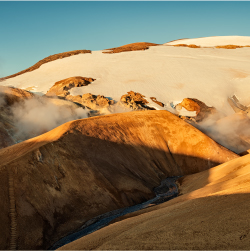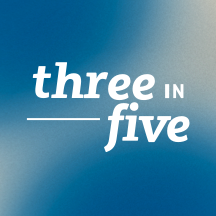Explore institutional insights
- Please enter a search term.
-
Insights
Stay up to date

Market update

Investor insights
-
Investments
Stay up to date

Market update

Investor insights
-
About us
Stay up to date
Learn more about our investment group

Market update

Investor insights
- Please enter a search term.
- Investments
-
Insights
- Back
- Insights
- Insights Overview
-
All insights
- Back
- All insights Overview
- Cash equitization: liquidity with flexibility
- Q3 2021: Investment grade private credit update
- Evaluating private credit opportunities in today’s market
- Leverage and derivatives, powerful tools for pension plans
- 2022 BentallGreenOak Perspective report
- Canadian Pension Risk Strategies 2022
- 2022 Mid-year Global Investment Outlook
- 2022 Corporate Responsibility Summary
- Q3 2022 Investment Grade Private Credit Market Update
- Q3 2022: Quarterly Inflation Watch
- Crescent Capital Markets Q3 2022 Update
- Multi-Asset Credit Strategy: October 2022 Update
- Update on the Real Return Bond Market
- SLC Management Update: real return bonds cessation announcement
- Multi-Asset Credit Strategy: November 2022 Update
- Multi-Asset Credit Strategy: December 2022 Update
- 2023 Global Investment Outlook
- Diversifying fixed income portfolios with alternatives
- Q4 2022: Quarterly Inflation Watch
- Q4 2022: Investment Grade Private Credit update
- Multi-Asset Credit Strategy: January 2023 Update
- Federal budget implications for Canadian preferred shares
- Q1 2023: Quarterly Inflation Watch
- Q1 2023: Investment Grade Private Credit update
- 2023 Mid-year Global Investment Outlook
- Q2 2023: Investment Grade Private Credit update
- July 2023: Inflation watch
- Q3 2023: Investment Grade Private Credit update
- September 2023: Inflation watch
- Narrowly syndicated credit: yield opportunities in an underexplored niche
- December 2023: Inflation Watch
- 2024 Global Investment Outlook
- Q4 2023: Investment Grade Private Credit update
- Looking under the hood at below-IG fixed income
- Q1 2024: Investment Grade Private Credit update
- Q1 2024: Inflation Watch
- Canadian Pension Risk Strategies 2024
- Insurance solutions
- Retirement plan solutions
- Sustainable Investing
- Market updates
-
Three in Five Podcast
- Back
- Three in Five Podcast Overview
- Mark Attanasio on the changing landscape of private credit
- James Slotnick on the U.S. midterm elections
- James Slotnick on the 2022 U.S. midterm elections
- Andrew and John on commonalities in investment grade private credit and narrowly syndicated bank loans
- Laila on operational considerations for investment grade private credit investors
- Cliff Corso on opportunity in the high net worth market
- Kate McKeon on sustainable investing and Net Zero
- Ben Greene on education, allyship, and the trans experience
- Melissa on the importance of the client experience
- Cristina Medina on Invest in Girls
- Steve on the Canadian P&C insurance market
- Rich and Peter on growing stress in the banking sector
- Doug on the debt ceiling
- Jim Blakemore on real estate debt
- Chris and Tim on the Special Financial Assistance Program for Taft Hartley plans
- Veronique on the evolution of LDI investing in Canada
- Chris Wright on the future of private credit
- Beth Brown on workplace burnout
- D.J. on the CMBS market
- Josh Davis on inner mastery and effective leadership
- James Slotnick on the politics of raising the U.S. debt ceiling
- Kevin Quinlan on climate change as a material investment risk
- Steve Peacher on the 10-year anniversary of SLC Management
- David Hamlin on fundamental credit research
- Michael Schnitman on alternatives in the high net worth space
- Steve Peacher reflects on challenges and milestones in 2023
- Subscribe
- About us
- Careers
- Contact us
- Newsroom
- Thank you
- CANADA | EN

Welcome!
Please select your country and language below:
Episode 69
OCTOBER 26, 2022
Joelle Faulkner on investing in the success of Canadian family farms
Joelle Faulkner, founder and CEO of Area One Farms, discusses how her investment firm is helping to support the farming community throughout Canada.
Steve Peacher: Hi, everybody! This is Steve Peacher, President of SLC Management. Thanks for listening to this episode of “Three in Five.” I'm really excited today to be joined by Joelle Faulkner. We haven't spoken in five years I think we were saying before we launched into this episode. She is the founder and the CEO of AreaOne farms and full disclosure this is a fund that Sun Life is invested, happily invested in, and so I think people will be very interested in our conversation. So, thanks for taking a few minutes.
Joelle Faulkner: Thanks so much for having me.
Steve Peacher: So, I just want to start by, tell everybody about AreaOne farms.
Joelle Faulkner: So AreaOne is an investment firm. We manage about four hundred and fifty million dollars of capital. We make equity partnerships with Canadian farm families. So, we currently work with twenty-eight farm families across Canada and co-own about one hundred and forty thousand acres. And the reason we do that is for farms to maximize profitability, and for them to be able to keep accommodating their kids, that bring kids back, they really need to scale. But there's a lot of risk to scaling because you keep having to invest a lot in additional land, technology, equipment, infrastructure. And so, especially with rising interest rates and the volatility in both weather and the commodity markets, there's a lot of embedded risks, and one of the ways of taking on less risk, but still allowing for that growth, is to work with AreaOne. So, we will co-invest, you put in money as the farmer. We put in money, and we own the assets and operations together, and we produce on those farms, grain, and oil seeds, so like wheat, canola, oats. Mostly low-cost commodities a lot of which get exported. And the one kind of really unique thing that we do is, in addition to the part that the farmer owns, they actually are an additional equity in the farm. So even though it's really unusual in a capital-intensive industry, it’s kind of the same way that technology founders get kind of additional equity in the businesses they start
Steve Peacher: It's such an interesting firm you've started. So, give everybody a sense of How did? How did you found it? What was your path to founding AreaOne farms?
Joelle Faulkner: I started ten years ago, and I had done a lot of school, and then worked kind of across a variety of areas from medical devices to finance, and I really wanted to start my own business, and so I took a year to look at different opportunities. And this one, to invest in land with farmers, wasn't where I expected to land, but I had a really neat background for it, because I grew up on a family farm. And so, I understood farmers and farmers have a really unique culture, a lot of work ethic, a very deep understanding of their communities and the businesses that they run. And my brother at the time was looking to expand our land base. So, I started getting really interested in how do people invest in land? And could we do it in a way that was a little different to how most investors work, which is generally buy land and rent it out. And could we do it in a way that was really a win-win win for the farmer, investors and the community. And my thought was, if we could work really well with the farmers, they always found interesting ways to create value, including, like improving the land, like making the same land base more productive. And if we could be partners on that, maybe we could also accommodate them earning more over time and increasing their own equity base and purchasing power. So, I got interested in that. I raised money over the first two years for six different farms, and we ran those as test pilots. And actually, the first farmer we worked with is still one of our partners, and he actually mentors four other partners now, and has continued to give me advice all the way along.
Steve Peacher: What your investment approach of partnering with families as opposed to buying them, buying their holdings and their farms out right is so interesting, so give us an example or two of you know the kind of transactions you've done. But maybe importantly, the differences, because you must see the difference that it makes in their families lives because you're trying to work with them so they can set themselves up to be a family business that continue. So, give me some anecdotes.
Joelle Faulkner: Worked with one in Manitoba where it was a fourth-generation farmer, one hundred and thirty-six year farm history and they had expanded aggressively a few years prior, and they had a combination of bad weather and a lot of risk that they took on, and the expansion landed them in financial trouble. So, we bought out the bank, so we actually took like they were going to end up in special loans. We bought out the bank. We added land to them. So, we decreased how much they rented, because we worked with them to buy from retiring neighbors, and we taught them how to do that land improvement work, so to bring more land into active production, to make for a more profitable farm, and helped with some of the well with mentorship and with some of the risk mitigation strategies. They have now it’s the first year that the oldest daughter is actually moving back to the farm, so long term they want to accommodate the same family, and two or three of their kids. And so, we're kind of stepping on that piece. In the other one that I find really neat is because we focus a lot on this land improvement and kind of bringing more land back into production, in parts of Ontario we've improved about ten thousand acres, which in addition to being really good for the community which otherwise relies on mining and mills which are boom/bust categories, this creates much more stable employment, it also means from those ten thousand acres we make enough food to feed about two hundred thousand people globally per year. So, it has this really neat effect. I think, both locally and hopefully globally, that Canada can really help support. And I mean you get those kinds of families to partner with. It's just such a treat, like they really appreciate it. We really appreciate it. We find really neat things to do together, and it does make a big difference to individual lives.
Steve Peacher: Well, it must be in incredibly gratifying. Usually, as you know, I like to end these with a kind of a completely unrelated personal question. But I’d like to ask you about something that is actually related to this. We were speaking before this a bit about it, and that is the intersection of climate change and the kind of investments you're making in the industry you're invested in, because I know you're seeing some intersections there, some changes, some good, some bad. So, it's a mixed bag. But talk a bit about how you're seeing climate change impacting your investments, and how you think they will impact your investments in the future?
Joelle Faulkner: Climate change is really hard on farms because in addition to market volatility, it means a lot of weather volatility, and even Canada, which will kind of in the scheme of the globe, is a net beneficiary. More rain and warmer temperatures actually help us with crop production. The volatility is a big problem, and we can use crop insurance and other risk mitigation to make it less, but the way we plan for it is we assume that we are going to have more crop failures than we used to, and we try to increase the productivity of what we grow, so that we, as farmers, can sell more, but also as a country can export more, because in the context of climate change, the world is going to need more food, and it's going to need a lot more food from places that are more reliable at growing it. And right now Canada's one of those places.
Steve Peacher: Well, this has been really interesting. I'm glad we've been able to reconnect after a few years. And, you know, we couldn't be happier to be partner with you in your in your fund, and good and good investments with a great purpose to it. So, thank you very much for taking the time with us Joelle, and thanks to everybody for listening to this episode of “Three in Five.”
Joelle Faulkner: Thanks very much.
The information provided should not be considered a recommendation to purchase or sell any particular security or asset. It should not be assumed that any of the transactions or investments discussed were or will be profitable. A full list of recommendations can be provided from the prior 12 months upon request. This content is intended for institutional investors. The information in this podcast is not intended to provide specific financial, tax, investment, insurance, legal or accounting advice and should not be relied upon and does not constitute a specific offer to buy and/or sell securities, insurance or investment services. Investors should consult with their professional advisors before acting upon any information contained in this podcast. Any statements that reflect expectations or forecasts of future events are speculative in nature and may be subject to risks, uncertainties and assumptions and actual results which could differ significantly from the statements. As such, do not place undue reliance upon such forward-looking statements. All opinions and commentary are subject to change without notice and are provided in good faith without legal responsibility.
SLC-20221024-2523539



